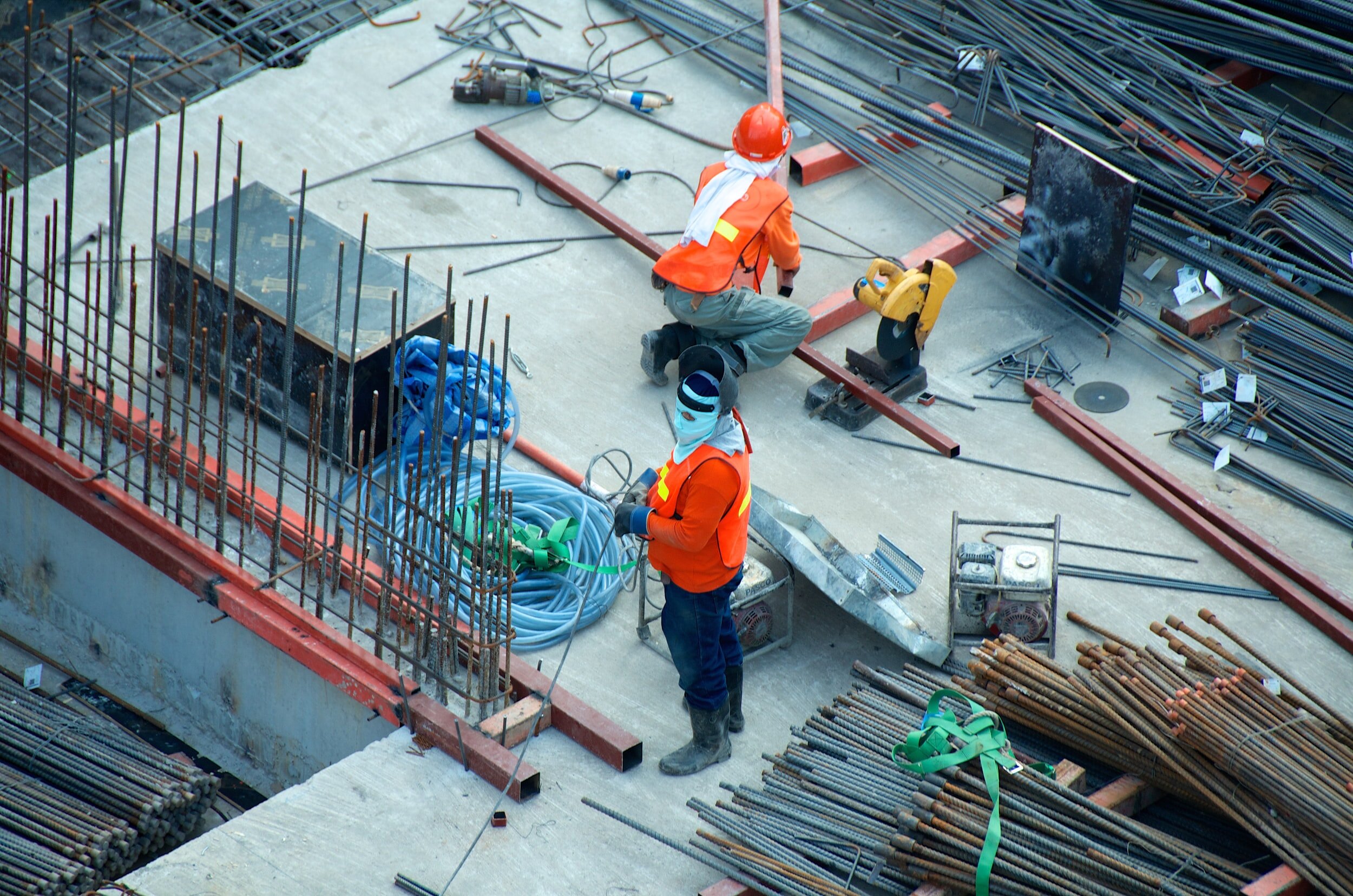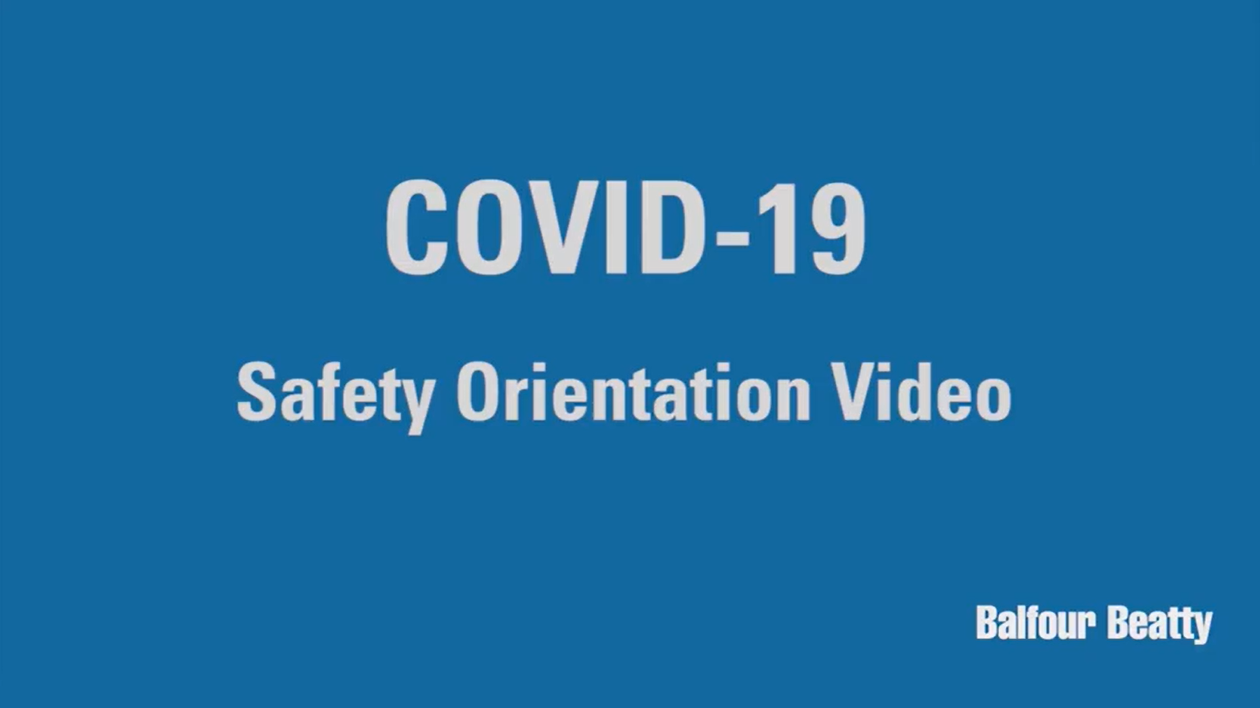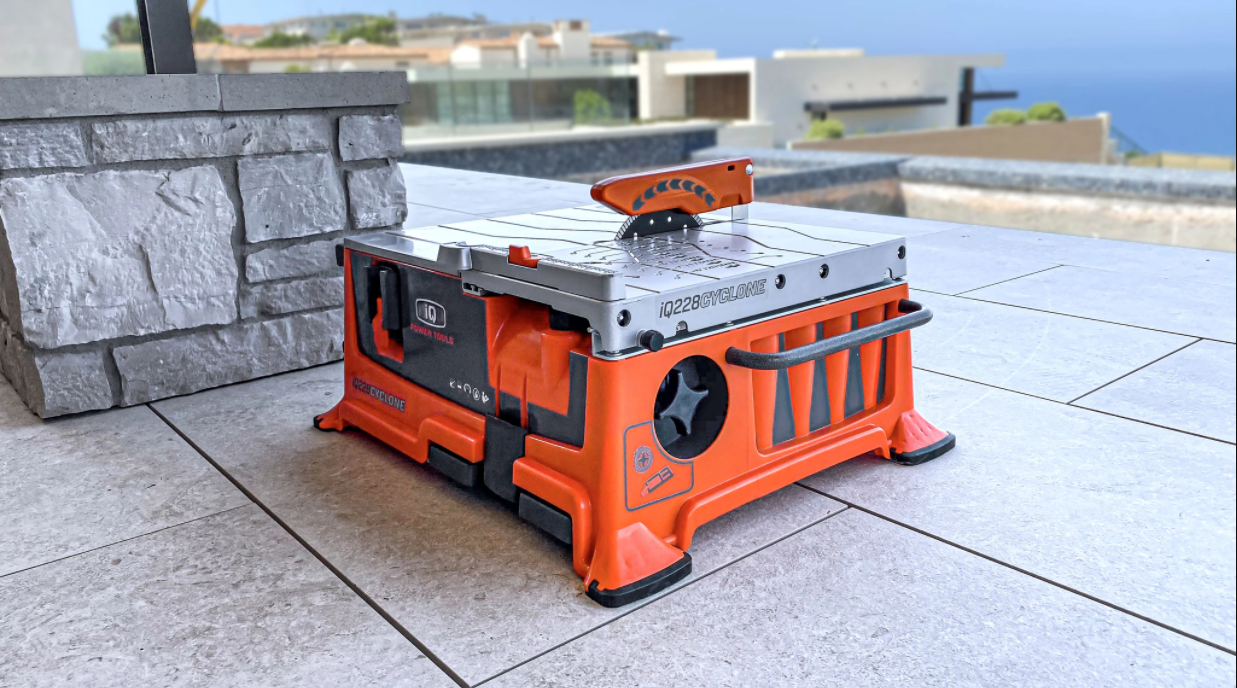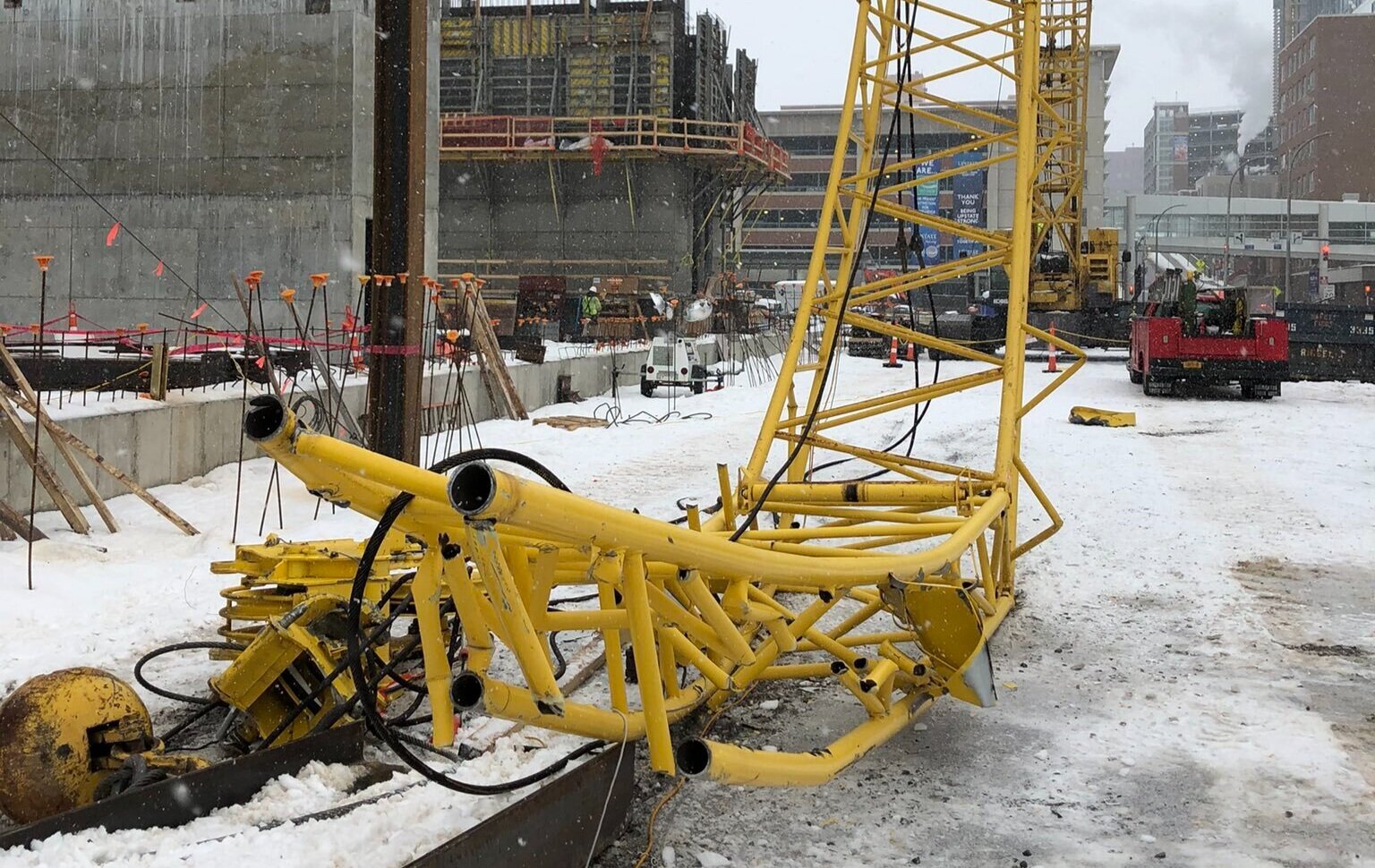Last November, Manhattan District Attorney Cyrus R. Vance Jr. announced felonious assault charges against a contractor’s superintendent and a manufacturer’s branch manager after two men suffered horrific injuries on a New York jobsite. Last week, OSHA formally announced citations against the St. Louis, Missouri based contractor.
On June 25, 2018, a mini crane fell four stories while lifting glass panels causing a traumatic brain injury to one worker and major spinal injuries to a second worker. Both the criminal charges and the OSHA inspection concluded that the contractor failed to properly train the employees on site before allowing them to operate the equipment.
“This employer knowingly put workers at risk by failing to ensure that the crane was operated by a competent person,” said Kay Gee, OSHA’s Manhattan Area Office Director in a statement. “Effective training of employees, knowledge of equipment’s limits, and correct operation of equipment are critical to preventing injuries.”
In total, OSHA issued 1 serious and 1 willful citation with total proposed penalties of $155,204 to the contractor.
Specifically, the contractor was also cited for the equipment being used in excess of its rated capacity (29 CFR 1926.1417), failing to ensure that the operator verified that the load was within the rated capacity (29 CFR 1926.1417), not ensuring that the equipment operator was competent (29 CFR 1926.1427), and for failing to ensure the employee was properly trained and understood the information (29 CFR 1926.1427).
You can view the full text of the citations by clicking here.
Full story: U.S. Department of Labor Cites Contractor Following Crane Collapse At New York City Construction Worksite | OSHA
[guest post] It’s a morbid statistic, but the construction industry experiences more workplace deaths than any other. With so many potential hazards, heavy-duty machinery, and power tools, it’s perhaps not surprising that serious accidents are relatively commonplace.
Even though we’re over a year into the COVID-19 pandemic, the virus is still threatening the health of construction’s workers and taking a toll on project timelines. It’s likely that your company has already determined the best course of action to help mitigate the risk of spreading the virus on your jobsites, but it’s never too late to learn from another contractor.
It’s been a little over a year since the coronavirus pandemic sent the entire world into a period of uncertainty, heartache, and panic. The construction industry itself has undertaken many different challenges, above and beyond keeping their people safe on the jobsite, many of which no one could have expected.
“You make a better door than a window!” is what I imagine loader operators constantly yell at the bucket in front of them (or maybe I’m just projecting based on my experience of having the habit of sitting right in front of the TV as a kid). Either way, operators may not be yelling that in the future, as equipment manufacturer, Doosan, has introduced what they claim is an industry first “transparent” bucket.
Reducing dust when cutting tile is important for many reasons (including safety and cleanliness), but wet tile saws can be a pain to use, with the slurry created spraying all around the work station and cold weather making the saw much more difficult to use outside. iQ Power Tools has a solution for that: the world’s first 7” portable dry table saw with integrated dust control.
In the construction industry, falls from height are continuously the leading cause of jobsite injuries, fatalities, and, as a result, OSHA citations. From May 3-May 7, OSHA invites construction employers and stakeholders to take part in their 8th annual National Safety Stand Down to Prevent Falls in Construction.
On Tuesday morning, February 23, the Syracuse Fire Department responded to a call about a collapsed crane on a construction site near the university. Thankfully, no injuries were reported.
It seems a little odd to be talking about air-conditioning when much of the United States hit some incredibly low temperatures in recent days, but a product that I learned about recently is just too exciting to ignore. Announced at CES 2021, a research company has unveiled an air-conditioned hard hat (ACHH) that can reduce the ambient temperature up to 22 degrees Fahrenheit!
2020 was a challenging year in many respects, but none greater than from a safety standpoint. The coronavirus pandemic placed the notion of “people over profits” under the microscope, while also balancing the needs of their employees to continue to make an income under difficult circumstances. While the pandemic was a large part of the construction safety conversation last year, there were several other developments to take note of for your projects in the future.











Last summer, Hilti announced that they had developed their first exoskeleton designed for construction tradespeople in a partnership with Ottobuck, a prosthetics, orthotics, and exoskeleton provider. Earlier this month, Hilti officially released the exoskeleton, announced more details, and published its retail price on their website.